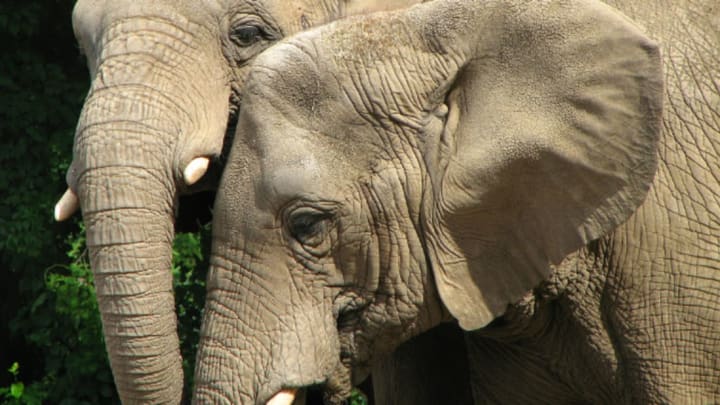Sleep is a funny thing. We literally can’t live without it, yet there’s still a lot about it that we just don’t understand. Now, new insight into the unconscious hours of African elephants may muddle the matter further, as a study in the journal PLOS One finds that the massive beasts spend barely any time asleep at all.
Scientists have hypothesized that the size of a mammal’s body is negatively associated with the amount of time it spends sleeping; in other words, big animals sleep less than small ones. Current record holders for shortest sleep time are the domestic horse (two hours, 53 minutes) and pony (three hours, 20 minutes).
While generally accepted, the theory has been tough to test, since you can’t exactly invite a whale into the laboratory for an overnight sleep study. Many studies have focused on captive animals for this reason, but there’s often a big difference between the lives of animals in zoos and those roaming free.
To check in on the sleeping habits of the wild African elephant (Loxodonta africana), researchers focused on the middle-aged matriarchs of two different herds. The scientists fitted each elephant with a collar to monitor her location and body position. (Elephants have two sleeping positions: lying down, which allows for deep REM sleep, and standing up, which is more of a shallow-sleep, nap-type situation.) They also implanted a small movement tracker at the tip of her trunk. Then both elephants were released to go about their lives as usual. The researchers took the trackers back 35 days later and reviewed the data they’d collected.
As it turns out, the elephants had been living remarkably busy lives. Like high-powered businesspeople, they rarely lay down—just once every three or four nights. The rest they did get—mostly while standing—was shallow and brief, averaging about two hours per night. Some nights they just kept walking and never slept at all.
“Studies of sleep in captive elephants have shown that they sleep for four to six hours per day,” study co-author Paul Manger of the University of the Witwatersrand said in a press statement. “However, the current study shows that in their natural habitat, wild, free-ranging elephants sleep only for two hours per day, the least amount of sleep of any mammal studied to date.”
What this means for elephants and other mammals remains to be seen. With just two participants, this was a very small study, and the researchers only tracked movement, not sleep itself. One of the two elephants was also caring for a calf, a responsibility that likely cut into her sleeping time.
